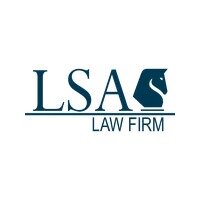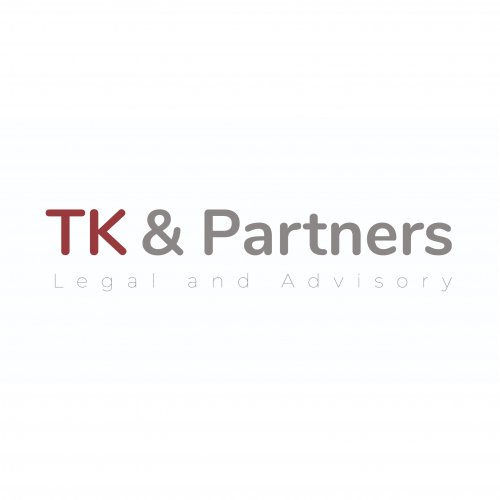Best Housing, Construction & Development Lawyers in Yerevan
Share your needs with us, get contacted by law firms.
Free. Takes 2 min.
Free Guide to Hiring a Real Estate Lawyer
List of the best lawyers in Yerevan, Armenia
About Housing, Construction & Development Law in Yerevan, Armenia
Housing, construction, and development law in Yerevan, Armenia, pertains to the legal frameworks governing the acquisition, development, construction, and management of residential and commercial properties. As the capital and largest city of Armenia, Yerevan is experiencing a significant growth in real estate development. The laws in this field are designed to ensure that land use is effective and that construction projects proceed without unnecessary delays while adhering to safety and zoning requirements. These laws affect various stakeholders, including developers, property owners, tenants, and government authorities.
Why You May Need a Lawyer
Legal advice in the field of housing, construction, and development may be essential in various situations:
- Property Acquisition: Navigating the complexities of buying or selling real estate, including due diligence and contract negotiation.
- Zoning and Land Use: Ensuring that proposed developments comply with local zoning and land-use regulations.
- Construction Contracts: Drafting and reviewing agreements between developers, contractors, and subcontractors.
- Dispute Resolution: Addressing conflicts between property owners, contractors, or tenants, such as breaches of contract or property damage claims.
- Permits and Licensing: Obtaining the necessary permits and licenses required for construction projects.
- Foreclosure and Eviction: Navigating the legal processes in cases of foreclosure or tenant eviction.
Local Laws Overview
In Yerevan, Armenia, key aspects of local laws relevant to housing, construction, and development include:
- Urban Development Legislation: Laws governing the planning and implementation of urban development projects, ensuring they align with Yerevan's master plan.
- Construction Codes: Specific building codes and standards that all construction projects must comply with to ensure safety and quality.
- Property Registration: Procedures for the registration of real estate and ensuring clear title transfers to prevent disputes.
- Environmental Regulations: Laws aimed at minimizing the environmental impact of construction activities and promoting sustainable development.
- Tenant Rights and Obligations: Regulations protecting the rights of tenants and landlords, including lease agreements and conditions of property use.
Frequently Asked Questions
What steps are involved in purchasing property in Yerevan?
The process involves due diligence, securing financing, negotiating and signing a preliminary sales agreement, registering the property, and finalizing the contract. Legal advice is essential to navigate this process effectively.
How can I resolve a dispute with a contractor?
Disputes can often be resolved through negotiation or mediation. If necessary, legal action may be taken by filing a claim in court, where evidence will be presented to support your case.
What is the role of zoning laws in property development?
Zoning laws dictate how land in specific geographic zones can be used. Understanding and adhering to these laws is crucial for obtaining permits and ensuring lawful land use and development.
What permits are required for starting a construction project?
Construction requires multiple permits, including building permits, environmental assessments, and possibly historical preservation approvals, depending on the site's location and characteristics.
Can foreigners buy real estate in Yerevan?
Yes, foreigners can purchase real estate in Yerevan. However, there are certain restrictions on buying agricultural land. Legal assistance is advised to navigate local laws and regulations.
How do eviction laws protect tenants in Yerevan?
Armenian law outlines specific conditions under which tenants can be evicted, offering protections against wrongful eviction. Legal procedures must be followed strictly.
What are the main factors affecting property valuation in Yerevan?
Key factors include the property's location, the current real estate market trends, property size and condition, and any unique features or renovations.
How long does it typically take to complete a construction project in Yerevan?
The timeline varies depending on the project's size and complexity, regulatory approvals required, and weather conditions. A small project might take a few months, while larger developments could take several years.
Are there sustainable building incentives in Yerevan?
There are advocacy efforts for sustainable building practices, but specific incentives would depend on government policies in place at the time. Checking with environmental authorities can provide current incentives.
What should I do if I find hazardous materials during construction?
Immediately cease construction. Engage qualified professionals to assess and remediate the risk. Follow local regulations for hazardous material disposal and resume work only when deemed safe.
Additional Resources
For further information and support, consider the following resources:
- Ministry of Urban Development of Armenia: Offers guidelines and information on construction standards and urban development policies.
- Yerevan Municipality: Provides access to zoning and permit information necessary for development projects within the city.
- Armenian Bar Association: A professional organization that can help connect individuals with qualified legal specialists in real estate, construction, and development law.
- Nongovernmental Organizations: Such as those focusing on sustainable development and tenant rights, may offer additional insights and resources.
Next Steps
If you require legal assistance in housing, construction, and development in Yerevan, Armenia, consider taking the following actions:
- Consult a Lawyer: Engage a legal professional specializing in real estate and construction law to understand your rights and obligations.
- Conduct Research: Familiarize yourself with the specific legal requirements and processes related to your situation or project.
- Obtain Necessary Documentation: Gather all relevant documents, such as contracts, permits, and correspondence, to facilitate accurate legal advice.
- Explore Resolution Options: Discuss potential dispute resolution options with your lawyer, including mediation or court proceedings, and consider the most beneficial approach for your case.
Lawzana helps you find the best lawyers and law firms in Yerevan through a curated and pre-screened list of qualified legal professionals. Our platform offers rankings and detailed profiles of attorneys and law firms, allowing you to compare based on practice areas, including Housing, Construction & Development, experience, and client feedback.
Each profile includes a description of the firm's areas of practice, client reviews, team members and partners, year of establishment, spoken languages, office locations, contact information, social media presence, and any published articles or resources. Most firms on our platform speak English and are experienced in both local and international legal matters.
Get a quote from top-rated law firms in Yerevan, Armenia — quickly, securely, and without unnecessary hassle.
Disclaimer:
The information provided on this page is for general informational purposes only and does not constitute legal advice. While we strive to ensure the accuracy and relevance of the content, legal information may change over time, and interpretations of the law can vary. You should always consult with a qualified legal professional for advice specific to your situation.
We disclaim all liability for actions taken or not taken based on the content of this page. If you believe any information is incorrect or outdated, please contact us, and we will review and update it where appropriate.










